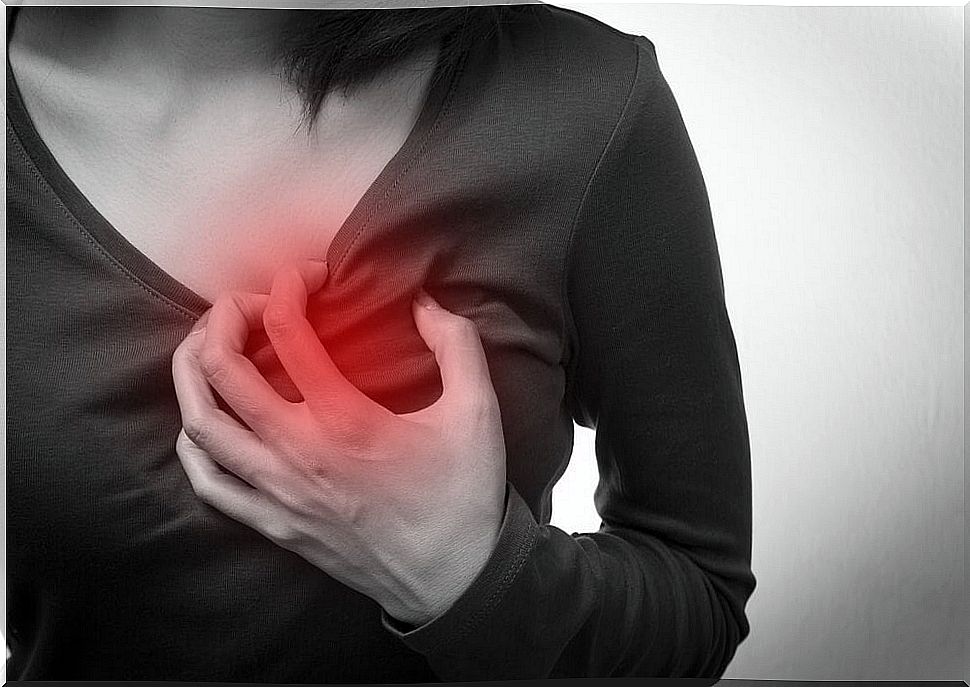Why Does Low Blood Pressure Prevent Heart Failure?
Keeping your blood pressure low, although within normal limits, can greatly prevent cardiovascular disease. To achieve this, it is advisable to incorporate healthy habits and take a medical follow-up in the case of suffering from any related pathology.
Next, we explain how blood pressure works and how the body has its own processes to try to lower it when it is too high. In this way, you can become aware of the seriousness of the problem if it is not prevented and treated properly.
Control and maintain low blood pressure
The body has a large number of compensatory mechanisms designed to maintain blood flow pressure within a range of values. Both high values and too low blood pressure values can cause serious problems in the body.
- When blood pressure is too high (hypertension), various lesions can occur in the circulatory system. For example, widening, tears or even rupture of the vessels.
- On the other hand, when blood pressure is too low (hypotension) the heart may not be able to pump enough blood. This would cause the correct amount of nutrients and oxygen to not reach the tissues.

Compensatory mechanisms
There are several compensatory mechanisms designed to keep blood pressure constant. Among them, we find:
- Cardiac output.
- Regulation of the diameter of blood vessels.
- The volume of blood contained in the blood vessels.
Blood volume
The mechanisms that regulate the volume of blood in the body are carried out, especially, by the excretory system. And, more particularly, by the kidneys. The kidneys can regulate the amount of fluid excreted in the urine. In this way they increase or decrease blood volume.
Increased blood volume will increase the amount of blood that must be pumped through the heart and held by the vessels. This will increase your blood pressure. However, the decrease in blood volume causes the opposite effect: it lowers blood pressure.
The diameter of the blood vessels
The diameter of the blood vessels is a highly regulated process. This has a direct effect on blood pressure. A dilation of the blood vessels means that they can hold a greater amount of blood. In this way, the amount of blood that will return to the heart will be less and the blood pressure will decrease.
On the contrary, a contraction in the veins and arteries will cause a greater resistance to the passage of blood flow. It will also cause less blood containment in them. Therefore, a greater volume will be returned to the heart and it will do so with more force, thus increasing blood pressure.
Cardiac output
Cardiac output is a parameter that refers to the amount of blood pumped by the heart in each beat. This cardiac output is regulated. In addition, it varies depending on the state of the body and the existing blood pressure.
In this way, the higher the cardiac output, the higher the blood pressure. This happens because the heart contractions are stronger and pump the blood with greater pressure.
On the contrary, if the cardiac output decreases and the contractions become weaker, the blood is not pumped as strongly. Then the blood pressure goes down.
Heart damage
Sometimes the blood pressure remains constantly elevated. So, the circulatory system is always putting in place compensatory mechanisms. And these end up causing cardiovascular conditions.

This occurs because high blood pressure causes a large increase in the workload of the heart. This has to pump with more force, when reaching a large amount of returned blood and at high pressure. As a result, the heart thickens and becomes larger (hypertrophy) and its walls become stiffer.
This increased stiffness prevents the heart from expanding properly. This increases your workload. This can lead to heart failure. Then the heart is not able to pump enough blood to meet the demands of the body.
Injury to blood vessels and arteries
Compensatory mechanisms related to the diameter of the blood vessels can also cause injury to them. Continuously enduring high blood pressure causes arteries to thicken and harden.
Hardening of the arteries can lead to arteriosclerosis. This, over time, can end in a partial or total obstruction of these vessels. This would cause serious cardiovascular problems such as a stroke, a heart attack, or an aneurysm.
Keeping low blood pressure under control is a good thing
In short, all these problems derived from increased cardiac load can be prevented. To do this, we have to maintain low blood pressure values. However, it should not be forgotten that these values must be within certain ranges. Excessive low blood pressure can also end up causing serious medical conditions.
Maintaining good lifestyle habits and good blood pressure control will help avoid complications and major health problems both in the short and long term. In this sense, it is necessary to follow the doctor’s instructions in the treatment of any pathology related to arterial health.









